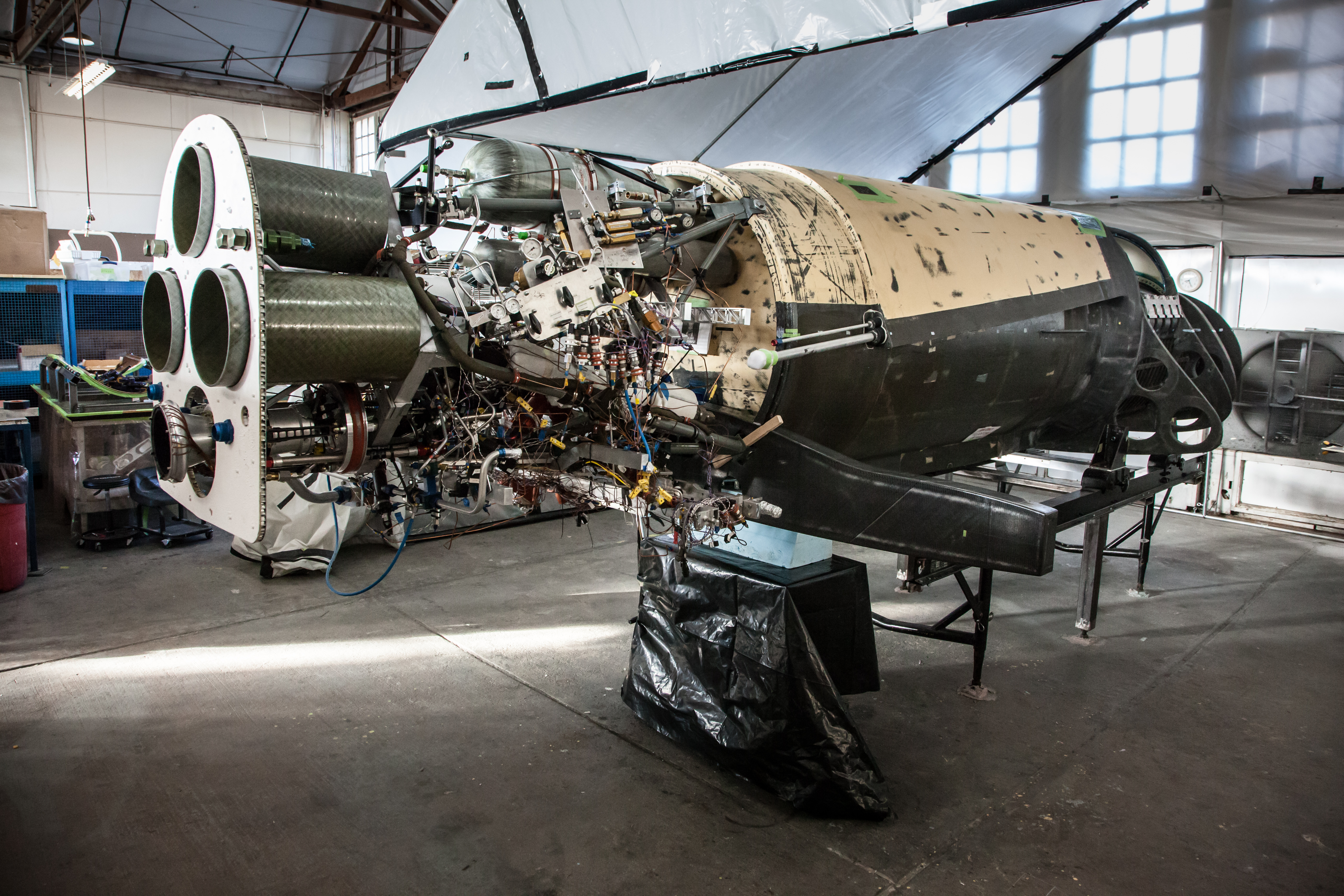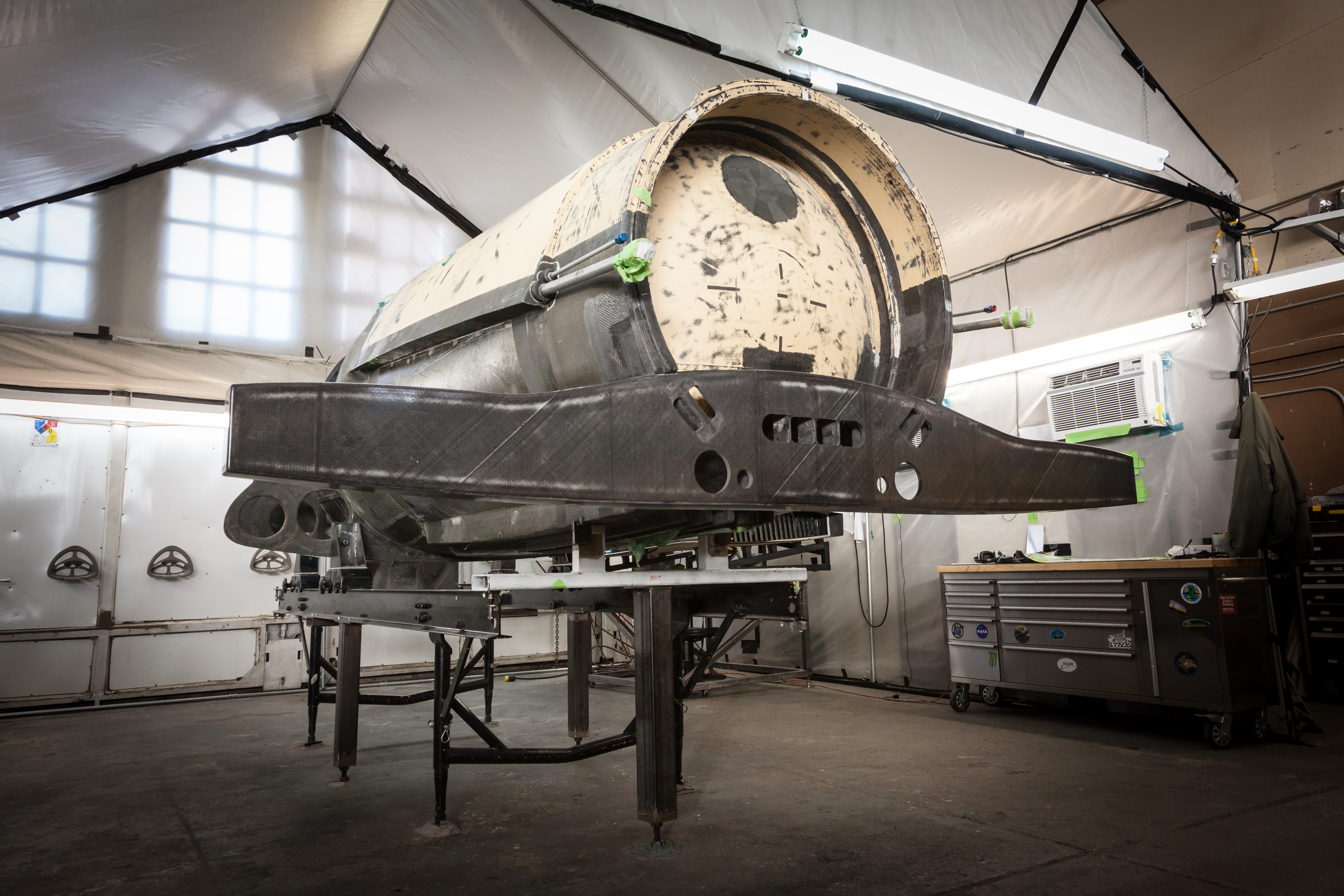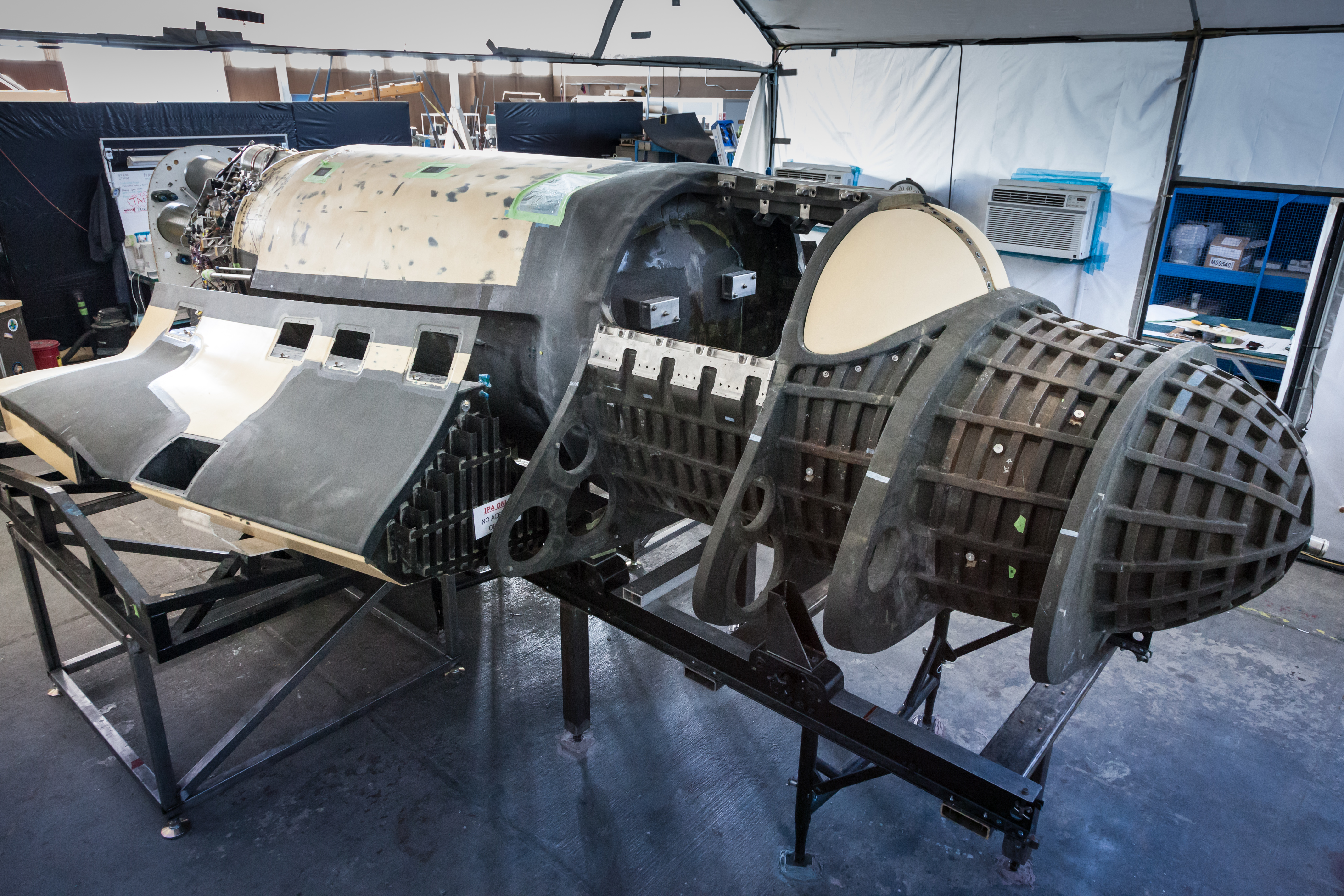
A private suborbital space plane is really starting to come together.
Technicians successfully attached a key structure called a "carry-through spar" to the body of XCOR Aerospace's Lynx rocket plane just before Thanksgiving, at a hangar at the Mojave Air and Space Port in California, company officials announced late last week.
"The carry-through spar is the heart of the loading structure on any winged craft — it supports the primary load of the wings and carries that load through the fuselage,” XCOR CEO Jeff Greason said in a statement. “Attaching the spar on a composite vehicle is a one-way operation, so it has to be done right the first time."

"We’re really excited to have achieved this step," he added. "Thanks to the hard work of the composites crew, we’re proceeding at a very rapid pace toward first flight."
Technicians had bonded the cockpit to Lynx's fuselage several months earlier. The vehicle remains wingless for the moment, though that should change relatively soon.
"We’re looking forward to the next big step, integration of the wing strakes onto the Lynx," XCOR composites shop manager Jeff Smith said in the same statement.
Lynx is a piloted, two-seat vehicle designed to fly one passenger and/or scientific experiments to suborbital space and back on 30-minute missions. Lynx takes off and lands horizontally, like an airplane, and should be able to fly multiple times per day when development is complete, XCOR representatives say.
Get the Space.com Newsletter
Breaking space news, the latest updates on rocket launches, skywatching events and more!

XCOR is developing three versions of Lynx: a prototype called the Mark I, which will enter the flight-test phase next year, and two more advanced variants, called the Mark II and Mark III. The company is currently selling seats aboard the Mark I and Mark II for $95,000 and $100,000, respectively.
Lynx isn't the only company in the suborbital spaceflight business; Virgin Galactic is selling tickets to ride its two-pilot, six-passenger SpaceShipTwo for $250,000 apiece.
Virgin had hoped to begin commercial operations as early as next year, but that timeline will be pushed back as a result of SpaceShipTwo's tragic crash during a rocket-powered test flight on Oct. 31, 2014. Investigators are still working to determine the exact cause of the accident, which killed copilot Michael Alsbury and injured pilot Peter Siebold.
Follow Mike Wall on Twitter @michaeldwall and Google+. Follow us @Spacedotcom, Facebook or Google+. Originally published on Space.com.
Join our Space Forums to keep talking space on the latest missions, night sky and more! And if you have a news tip, correction or comment, let us know at: community@space.com.

Michael Wall is a Senior Space Writer with Space.com and joined the team in 2010. He primarily covers exoplanets, spaceflight and military space, but has been known to dabble in the space art beat. His book about the search for alien life, "Out There," was published on Nov. 13, 2018. Before becoming a science writer, Michael worked as a herpetologist and wildlife biologist. He has a Ph.D. in evolutionary biology from the University of Sydney, Australia, a bachelor's degree from the University of Arizona, and a graduate certificate in science writing from the University of California, Santa Cruz. To find out what his latest project is, you can follow Michael on Twitter.









